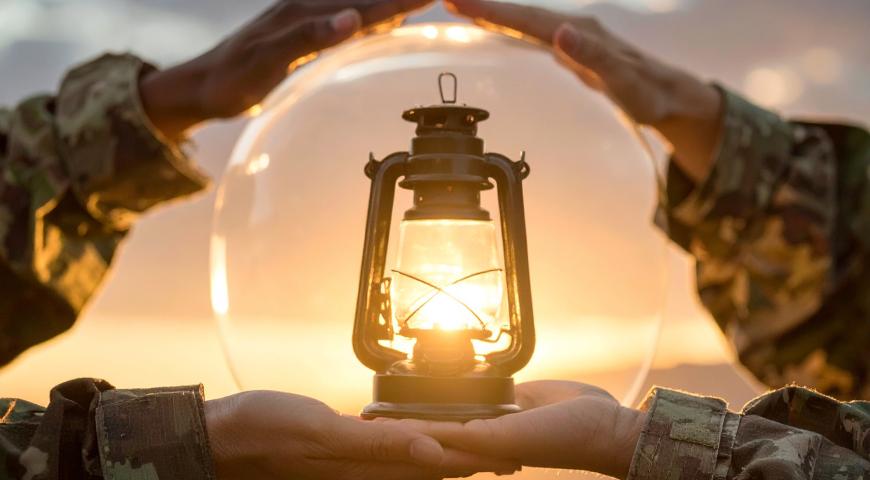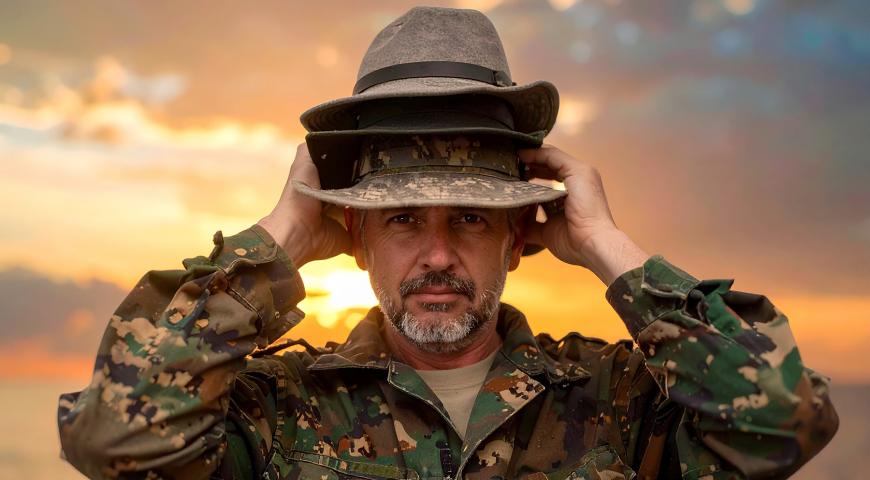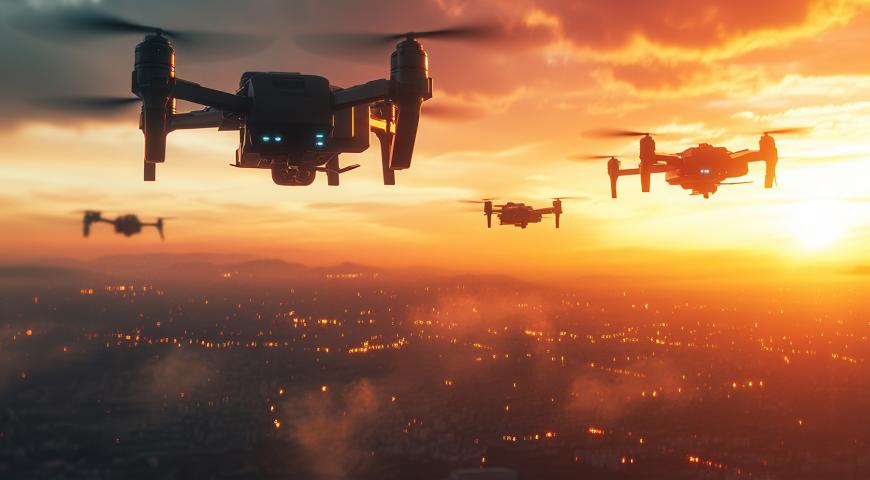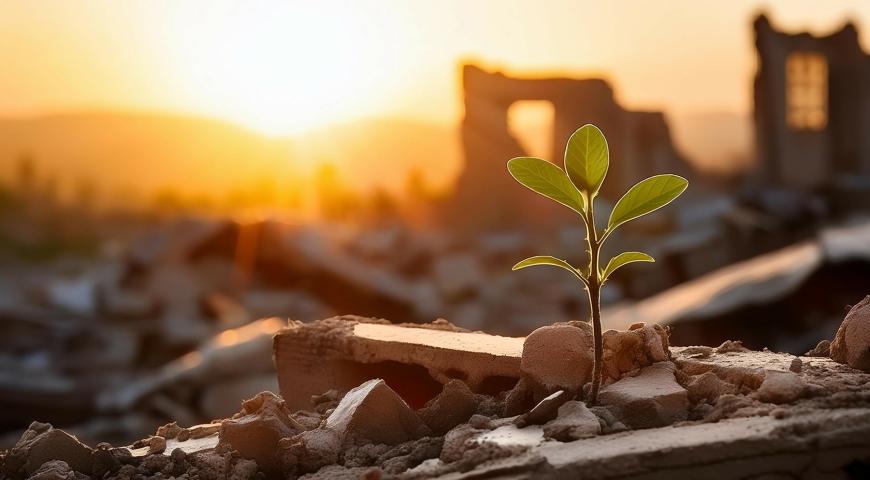Writing to Understand War - cleansing your soul in 1000 words or less….
WGCDR Jo Brick
To delve into the deepest recesses of your mind and soul in an effort to understand your experiences of war and service so that you can share them with others as a means to connect, inspire understanding, and assist in healing. That’s the short and pristine answer to the question of ‘why we write’; but underneath this unsullied answer are many dark questions that haunt you: what does it mean to be a ‘warrior’ in a world where force can be used from vast distances; why don’t they care to see what we do ‘over there’? So you write, and read, and learn, and write more and share – to try to answer these questions and help you understand your experience, while adding your voice to long human narrative of war. More importantly, you write to help people ‘at home’ understand what you did on their behalf.
But first, READ!
I find that understanding the obverse – why I read about war – is a way to identify the fundamental reasons why I write. During an interview prior to his departure from office, former US President Barack Obama highlighted how reading ‘helped him to figure out who he was, what he thought and what was important’.[1] He also turned to reading to ‘hop across history’ and find others who had similar experiences as an antidote to feelings of isolation in challenging times. Obama also wrote to communicate his vision and ideas, and as a way to define himself as a leader.[2]
Similarly, I read to find solace in the experience of others; that what I feel about my military experience is not novel, and is likely to have been more articulately recorded by those that have gone before. The works of Remarque,[3] Junger,[4] Faust,[5] Marlantes,[6] Hennessy,[7] Mullaney,[8] Turner,[9] and Klay[10] form the circle of books within which I attempt to grapple with human behaviour in war, the nature of contemporary conflict, and the jarring effects of rapid transition between Over There and Home. When you feel like you have compromised your soul to achieve the mission, there is nothing more comforting than reading about a similar experience from another war. That author becomes your momentary salvation from your own thoughts, which threaten to drag you down into a pit of despair about what you think you have become. I read Karl Marlantes’ book, What It Is Like to Go To War, during my last deployment in 2016.[11] It is the most flagged and dog eared book that I own. Reading first-hand accounts about warfare provides an indispensable backdrop against which I can frame my own experiences, and share them through my own writing.
The long narrative of war – you may contribute a verse
The question, O me! So sad, recurring – What good
Amid these, O me, O life?
Answer
That you are here – that life exists and identity,
That the powerful play goes on, and you may
Contribute a verse.
Walt Whitman, ‘O, Me! O Life!’ [12]
So that is how to create a single story, show a people as one thing, as only one thing, over and over again, and that is what they become…
...The single story creates stereotypes, and the problem with stereotypes is not that they are untrue, but that they are incomplete. They make one story become the only story.
Chimamanda Ngozi Adichie[13]
War is one of the most powerful plays that form a substantive part of the human drama. I write in an attempt to contribute ‘a verse’ to the human story of war – to offer a different perspective. Stories of war are, understandably, dominated by those who directly fight it – tales of battles at the ground level. Everyone involved in war – from the fighters to the civilians who are just trying to survive – has a story to tell about their experiences and these different perspectives should be shared because war is better viewed through prism rather than a telescope. Arguably, in the post 9/11 wars, Special Forces soldiers are the primary protagonists – with myriad books and movies dedicated to their contribution. But the majority of us, who have deployed on operations in Afghanistan and Iraq are not these men. We are the planners, analysts, logisticians, staff officers, engineers, and technicians – the long tail behind the tip of the spear. Our experience of war is very different, and at times, we help wield the weapons of war from afar – planning and directing air strikes hundreds or thousands of kilometres away from ‘the fight’.
The stories of the ‘supporting cast’ must be told to provide a multitude of different views of warfare. There are many accounts of battle and the people who fought them, perhaps because there are more personnel in the combat arms when compared with smaller employment categories or niche experiences that involve only a small group of people. The history of aerial photographic intelligence provides one example of an important story about a critical function that aided in Allied success during the Second World War. Aerial photographic reconnaissance and intelligence is not a topic that excites popular interest in warfare and it is not the subject of much writing, but is a vital function that is largely taken for granted in military planning today. This is why Constance Babington Smith’s Evidence in Camera is an important first-hand, detailed, view of photographic intelligence during the Second World War that talks about major battles, like the Battle of Britain, from a perspective outside of the Spitfire cockpit.[14] These diverse voices are how we avoid ‘a single story’ and prevent the creation of a military archetype that is not at all representative of the whole. An accurate historical record of our wars demands this diversity of views, and contributing different perspectives through writing is an important way of preserving these experiences.
Deconstructing your experience – writing to understand war
‘ “You mean… that stuff is your thoughts?” Harry said, staring at the swirling white substance in the basin.’[15]
JK Rowling, Harry Potter and the Goblet of Fire
On operations, the focus tends to be on the immediate – what is the problem we need to address right now in this planning group; what targets need to be considered in this phase of operations; what was the Battle Damage Assessment from the previous op? There was enough to keep me occupied during my shift and to keep me awake at night. I saved my personal need to deal with my emotions for another time. I put that away in a box, because there is no room for it on the ops floor. And there is no way I would have discussed it with anyone when I called home. I did not want Home polluted by the ugliness of what we were doing. Deconstruction of my thoughts and feelings had to wait for another time, usually on Sundays – the only day ‘off’. During these quiet moments, the thoughts and emotions I put away would sometimes rise to the surface and writing became a way to capture them. My red Moleskine journal was my version of the Hogwarts Pensieve – a place where I could extract my thoughts, lay them bare through words, and examine them.[16]
The topics that have an enduring interest for me relate to the human experience of war – from the experiences of strategic decision makers to the tactical level operators – and how these people navigate the uncertainty, moral dilemmas, and tragedies arising from war. I have tried to write about these challenges to frame and comprehend my own experience, but these works remain ‘in progress’. The value is in the process of committing my thoughts and emotions to paper – because articulating those thoughts and feelings means I have to confront them, no matter how uncomfortable or disturbing. By writing them in my journal, I can examine the reasons underlying them in an attempt to understand my individual experience and how it sits within the mass of human experience in war.
Sharing the experience
How does anyone leave a war behind them, no matter what war it is, and somehow walk into the rest of his life?
Brian Turner, My Life as a Foreign Country[17]
Vincent smiled. ‘It’s good to see you, Babe. Thanks for asking me. GIs – especially GIs who are friends – belong together these days. It’s no good being with civilians any more. They don’t know what we know and we’re no longer used to what they know. It doesn’t work out so hot.’
JD Salinger, ‘Last Day of the Last Furlough’, Saturday Evening Post, 15 July 1944[18]
In some ways, joining the military is an act of faith in one’s country—an act of faith that the country will use your life well. What your piece of a war will be, after all, is mostly a matter of chance.
Phil Klay, The Citizen Soldier[19]
My journal also became my near contemporaneous record of my deployment. Sometimes, when I read the entries I made, I can recall the exact moment in time that I wrote it. I can visualise where I was, who and what was around me, and resurrect the emotions from that time. I wanted to make sure that I recorded some things in detail – subject always to security of course – so that I could explain my experience to the people closest to me. I wanted to capture the spectrum of what I felt – the fear, pride, hate, despair, loneliness, courage, love, despondency, the sense of belonging, and happiness. Capturing the happiness and belonging was the most challenging. I didn’t write about the people who became closer to me than my family because I didn’t want to admit that there was a small part of me that didn’t want to go home. I didn’t have to explain anything to the people I was deployed with – we had seen the best and worst of each other, and we implicitly understood what we were doing. No explanation necessary. But going home meant explaining, and I wasn’t sure if I could do that well. My journal was something I could use to explain my experience, a written record for someone to read, when talking about the experience so long afterwards became ineffective in bridging the gap between Over There and Home.
There has been much written about the increasing gap between military forces and the societies they are intended to serve. A common argument from military veterans and their families is that there are service personnel overseas at war and the people at home do not know much about those operations and also do not care enough to find out.[20] Arguably, this disjoint between military members and wider civilian society makes the transition ‘home’ more difficult.[21] This issue is not new, as noted by the character of Vincent in Salinger’s ‘Last Day of the Last Furlough’. Being able to disclose your personal troubles about your military experience with fellow service personnel is much easier than explaining to people outside the military. However, it is vital that different military members record and share their experiences to avoid uneducated outsiders from transforming the ‘single story’ they may hear into the ‘one truth’ about military service.
Perhaps the most important reason why we write is to help the nation understand our experience, to convey what we have seen and the burdens we bear on return; so that the next time a decision needs to be made about whether or not we go to war, it is not made lightly and that significant consideration is given to use our lives well.
Wing Commander Brick is a Legal Officer in the Royal Australian Air Force and is currently Directing Staff, Australian Command and Staff Course. She has served on a number of operational and staff appointments from the tactical to the strategic levels of the Australian Defence Force. She is a Member of the Military Writers Guild, an Associate Editor for The Strategy Bridge, and an Editor for The Central Blue.
[1] Michiko Kakutani, ‘Obama’s Secret to Surviving the White House years: Books’, The New York Times, 16 January 2017, https://www.nytimes.com/2017/01/16/books/obamas-secret-to-surviving-the-white-house-years-books.html?_r=0 (accessed 30 December 2017)
[2] Kakutani.
[3] Erich Maria Remarque. All Quiet On the Western Front (London: Vintage, 2014).
[4] Sebastian Junger. War. London: Fourth Estate, 2010; Tribe – On Homecoming and Belonging (London: Fourth Estate, 2016).
[5] Wolfgang Faust. The Last Panther (Createspace Independent Publishing Platform: United States, 2016).
[6] Karl Marlantes. What It Is Like to Go To War (London: Corvus, 2012).
[7] Patrick Hennessey. The Junior Officers’ Reading Club (London: Penguin Books, 2010).
[8] Craig M. Mullaney. The Unforgiving Minute – A Soldier’s Education (New York: Penguin Books, 2009).
[9] Brian Turner. My Life as a Foreign Country (London: Vintage, 2014).
[10] Phil Klay, Redeployment (New York: The Penguin Press, 2014).
[11] Marlantes, What It Is Like to Go To War.
[12] Walt Whitman, ‘O Me! O Life!’, Leaves of Grass (1892) https://www.poetryfoundation.org/poems/51568/o-me-o-life (accessed 30 December 2017).
[13] Chimamanda Ngozi Adichie. ‘The Danger of a Single Story’, at TEDGlobal 2009 https://www.ted.com/talks/chimamanda_adichie_the_danger_of_a_single_story?utm_campaign=social&utm_medium=referral&utm_source=facebook.com&utm_content=talk&utm_term=humanities (accessed 06 January 2018).
[14] Constance Babington Smith. Evidence in Camera. The Story of Photographic Intelligence in World War II (London: Chatto and Windus, 1958).
[15] JK Rowling, Harry Potter and the Goblet of Fire (London: Bloomsbury, 2000) 519.
[16] In the Harry Potter universe, the ‘pensieve’ is a container in which a person can place their thoughts for observation. It is used in many of the Harry Potter books. An explanation is given in a number of fan sites, including this one called ‘The Leaky Cauldron’: http://www.the-leaky-cauldron.org/features/essays/issue4/pensievethoughts/ (accessed 05 January 2018).
[17] Turner, My Life as a Foreign Country, 114.
[18] Quoted in David Shields & Shane Salerno. Salinger (New York: Simon & Schuster, 2013) 100.
[19] Phil Klay. The Citizen Soldier – Moral Risk and the Modern Military http://csweb.brookings.edu/content/research/essays/2016/the-citizen-soldier.html (accessed 06 January 2018).
[20] Kate Taylor. ‘ “We are at war and people don’t even know”: Inside the divide between the military and the rest of America that’s wider than it’s ever been’. Business Insider Australia, 20 July 2017 https://www.businessinsider.com.au/divide-between-military-civilians-bigger-in-america-2017-7?r=US&IR=T (accessed 07 January 2018). In an Australian context, the ‘gap’ between military personnel and the wider community was also discussed in James Brown, Anzac’s Long Shadow (Collingwood: Redback, 2014).
[21] See also Sebastian Junger. Tribe – On Homecoming and Belonging (New York: Harper Collins, 2016).
Technical Mastery
Social Mastery
Please let us know if you have discovered an issue with the content on this page.
Comments
Start the conversation by sharing your thoughts! Please login to comment. If you don't yet have an account registration is quick and easy.




